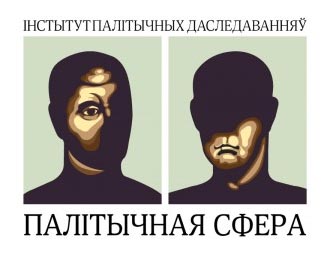Call for papers: Journal of Political Studies "Political Sphere" (Palityčnaja Sfiera) # 21

Institute of Political Studies "Political Sphere" and Milosz Center, Vytautas Magnus University. Series: International Relations. Bilateral Relations # 21 (2) 2013.
The main topic of the issue includes strategies of implementation of politics of history in East-Central Europe, similarities and differences of handling the past, and interconnection of politics of memory with a wider context of political and cultural transformations in post-communist countries.
Part of the issue will be filled with materials of the special conference “Restoration of History: Politics of Memory in East-Central Europe”, which was held in Minsk on 3-4 May 2013. We also encourage authors, who did not participate in the conference, to submit articles that study politics of memory.
How should nation-state look like? How should we formulate criteria for belonging to the nation? What should cultural memory look like? How should we build relations with minorities? And what is the basis for relations with neighbours - traditions of common political existence, economic interests or ethnic proximity?
These questions do not have a definite answer and give birth to plenty of intellectual projects, discussions and collisions. Moreover, it becomes obvious that politicians increasingly use issues of memory and identity in their interests. Of course, this does not facilitate understanding neither inside the country nor among the neighbours.
The main themes of the issue are
- Common past or autonomous national histories? Memory of the Grand Duchy of Lithuania and Polish-Lithuanian Commonwealth in the countries of East-Central Europe.
- Kastuś Kalinoŭski and the uprising of 1863: conflict of interpretations after 150 years.
- Communist past: between overcoming and restoration in post-communist countries.
We accept articles in Belarusan, Russian, English, as well as in Polish and Ukrainian.
The articles will be published in Belarusian or Russian. Translation of the articles accepted for publication will be arranged by editorial team.
The topics of submitted articles may differ from the main topic of the issue.
Only original texts, which have never been published as articles or parts of monographs, can be submitted for consideration.
Submitted articles undergo anonymous peer review.
For submission guidelines, see: http://palityka.org/english/rules-of-submitting/.
Materials for publication in Issue No. 21 are accepted until 20 August 2013.
Please, contact us for any inquiries: [email protected].
For additional information see: www.palityka.org.
About the magazine
Political Sphere (Palityčnaja Sfiera) is a leading specialized periodical in the field of political and social sciences in Belarus. The journal publishes research materials on all key topics and on all approaches of political science and related disciplines. The articles undergo anonymous peer-review. Selection of materials for publication is based on their adherence to scholarly standards as well as their empirical and theoretical contribution to understanding of politics. The journal is included in a number of international social science databases, such as the Central and Eastern European On-line Library. It is also referenced in the International Political Science Association (IPSA) Abstracts. The journal is published since 2001.
-
03.01
-
07.10
-
22.09
-
17.08
-
12.08
-
30.09










































